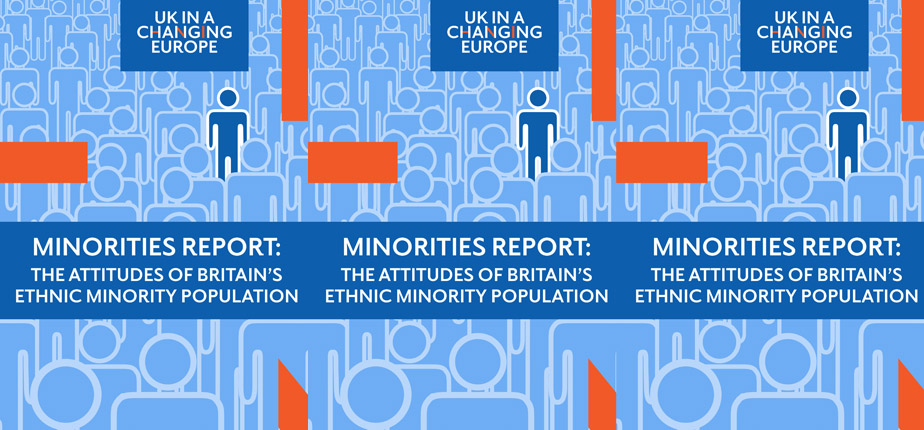
Mariam Karim
In the UK, a country in which diversity has increased over generations, the concept of ‘belonging’ is included within many aspects of identity including culture, ethnicity, politics and religion. As the population of ethnic minority communities in Britain grows, so does the variation in viewpoints regarding society, values and governance.
The Minorities Report: The attitudes of Britain’s ethnic minority population by UK in a Changing Europe unveils these perspectives, challenging preconceived notions and highlighting a complex array of attitudes that defy stereotypes.
The report highlights issues ranging from voting patterns to opinions on crime and community engagement, demonstrating how the voices of ethnic minorities both resonate with and diverge from the broader British societal narrative.
Understanding the attitudes of Britain’s ethnic minorities goes far beyond analysing statistics; it is essential in creating a society in which policies reflect the diverse values and identities within Britain. For policymakers, this knowledge can guide approaches to multiculturalism and integration by fostering unity whilst respecting individuality.
The views of ethnic minority citizens, as shown in the Minorities Report, display a wide range of experiences and beliefs. Viewpoints within ethnic minority communities in Britain don’t fit neatly into a single political category. In fact, there’s a noticeable split as British Indian, Chinese, and Hindu communities often lean more conservative on economic issues, while British Caribbeans and Muslims tend to align more with the left.
However, when looking beyond party preferences, a few shared values stand out.
Many ethnic minority groups tend to have more positive views on multiculturalism and immigration than the general population. In addition, there is also a strong focus on economic success and advancement, not just as a personal goal but also as a way to connect with and establish a place within British society.
The Minorities Report also explores the unique perspectives within Britain’s Muslim population. For British Muslims, belonging is often linked to values of community, economic advancement, and social stability.
Many Muslim respondents emphasise the importance of community safety and shared moral standards, which they see as vital in fostering a sense of security and cohesion in their neighbourhoods. These values reflect both a dedication to the preservation of cultural heritage and a desire to integrate into British society, showcasing how British Muslims’ sense of identity balances tradition with assimilation.
Economically, many in the Muslim community expressed strong support for policies that emphasise social welfare and public services – priorities that resonate with religiously embedded principles like zakat (charitable giving) and a sense of mutual responsibility.
This alignment reveals how many British Muslims find common ground in economic values that uphold community well-being, tying their sense of belonging to a broader vision of a supportive, inclusive society.
Ultimately, The Minorities Report reveals that identity and belonging within Britain’s Muslim community are multifaceted, driven by both shared values and individual experiences.
The report underscores that British Muslims, like all ethnic minorities, bring a nuanced understanding of what it means to belong—one that reflects a blend of cultural tradition and active engagement in the wider British social landscape.
The Minorities Report provides valuable insights into voting patterns across ethnic minority groups in the UK, shedding light on how these communities navigate the political landscape. In the 2024 General Election, we witnessed a Labour victory, however, the election produced a series of unforeseen outcomes among ethnic minority voters.
Despite Labour’s strong performance overall, the party suffered losses in some of the UK’s most ethnically diverse constituencies. For example, Leicester South, a constituency with a substantial Asian population and a strong Labour presence since 1987, fell to an Independent. Other Labour-held seats such as Ilford North and Birmingham Yardley saw their high-profile MPs struggle to retain their positions as they secured a majority by only a few hundred votes.
The results provided a warning to the Labour Party, revealing that their position on the humanitarian crisis in Gaza alienated many of their Muslim voters, who switched their support in favour of Pro-Palestinian candidates. Among Muslim voters, Labour’s support decreased, with around 28% fewer Muslim voters supporting the party compared to 2019. Furthermore, support for alternative candidates rose, including Independents and the Green Party, particularly in areas with large Muslim populations.
The Minorities Report provides a rich, layered view of the attitudes held by ethnic minorities in Britain, showing that these communities are far from homogenous. Their perspectives are shaped by a blend of religious beliefs, cultural heritage, economic priorities, and experiences within British society.
This diversity in attitudes—from social conservatism to economic liberalism—reveals how ethnic minorities are engaged in a dynamic process of defining their place within the UK.